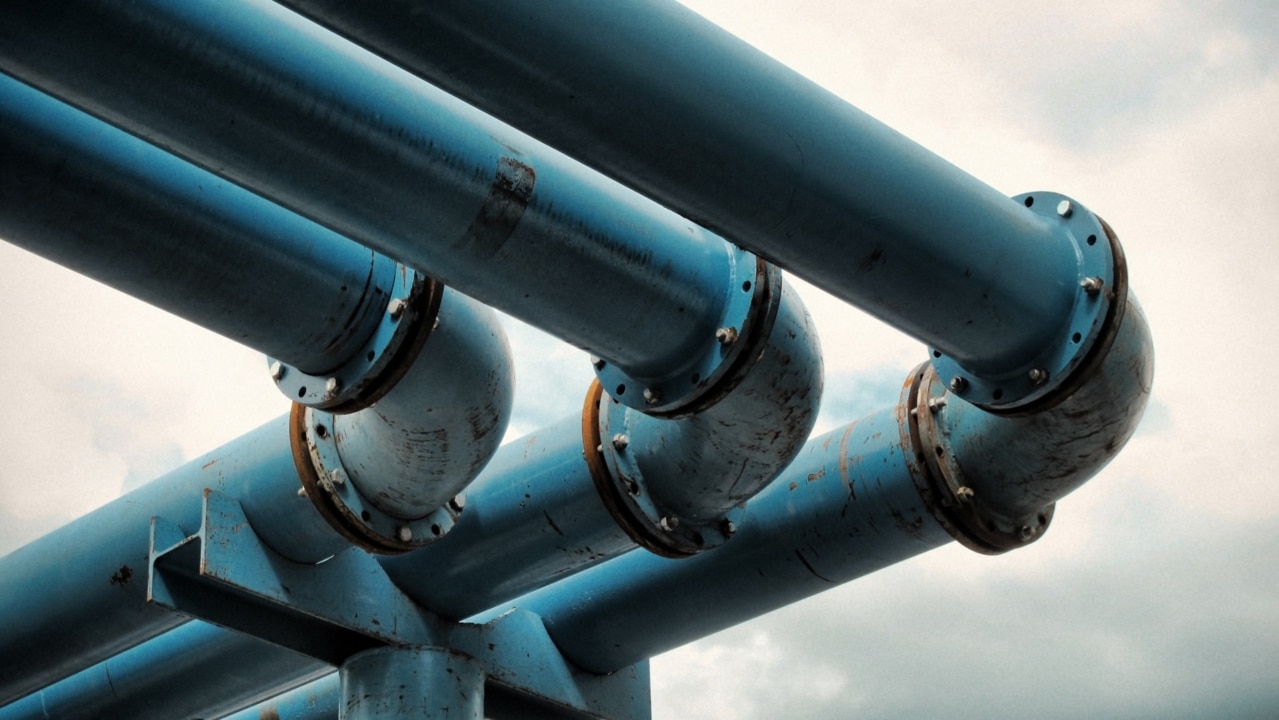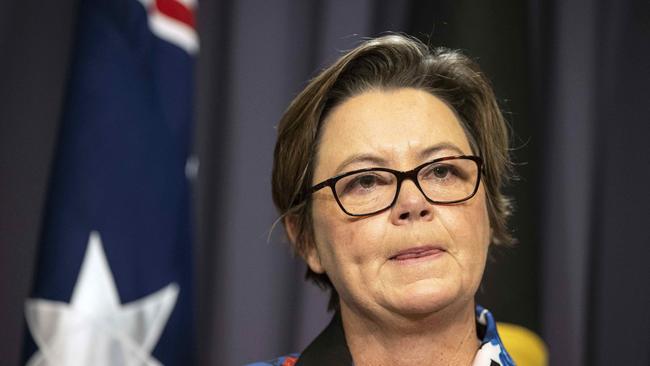Tighter consultation rules to boost $90bn gas industry
After a spate of legal challenges by environmentalists, new legislation plans to tighten rules around who offshore developers must consult with for their projects.

Rules governing who must be consulted prior to works on an offshore resource project will be tightened in the autumn, the federal government has quietly briefed industry members.
Sources familiar with the plan have told The Australian it marks a boost to the outlook for the $90bn gas industry which has been stymied by a spate of legal victories brought by environmentalists.
Resources Minister Madeleine King last week launched the first step of efforts, revealed by The Australian, to tighten the rules around who is deemed a relevant person and must be consulted and considered when new projects seek regulatory approvals.
The decision followed a spate of legal victories by environmentalists that have delayed mega projects, including Santos’s $5.3bn Barossa LNG development.
It is a move that will be warmly welcomed by the gas industry, which has warned delays could jeopardise regional alliances and energy security.
The government will move legislative changes to remove some legal ambiguities around consultation requirements.
The exact changes will depend on findings of a market consultation launched by Ms King, but a tightening of the rules will address concerns about the regulatory landscape faced by gas developers since Santos was forced in 2022 to shelve drilling on its $5.3bn Barossa LNG project in the Timor Sea.
A court halted drilling for more than a year after finding the gas giant had not consulted enough with Indigenous Australians.
However the Federal Court on Monday rejected a claim the gas giant’s proposed 262km pipeline would cause irreparable damage to First Nations people and their sacred sites. The ruling came just weeks after the National Offshore Petroleum Safety and Environmental Management Authority gave the gas giant the green light to resume drilling.
It has gone some way to tempering market jitters, with the ruling widely interpreted as imposing a more stringent threshold for similar action.
Still, developers remain on edge and wary of injunction challenges that could be launched at the most inopportune time.

Representatives for Ms King did not immediately respond to requests for comment, but the Minister this week said the rules needed re-examining.
“Consultation is an essential step for all offshore oil, gas and greenhouse gas storage approvals. The government is determined to make sure we have clear and unambiguous rules that give communities and stakeholders a real say, and are also workable for industry participants,” Ms King said when announcing the review of the legislation.
“We want to improve and clarify the consultation requirements. The government will ensure that any possible changes do not diminish the obligations on companies to have genuine consultation with people and communities whose activities may be affected by an offshore activity.”
Market consultation over the legislative changes runs until February 23.
While Australia’s gas industry will want to see the detail, sources said the changes would be greatly appreciated.
Meg O’Neill, chief executive of Woodside – which is developing the $16.5bn Scarborough LNG project in WA – last year said legal challenges were one of the more pressing risks facing the sector.
Ms O’Neill has urged the government to move to limit the scope of legal challenges, amid a broad feeling within the industry that legislative ambiguity is being exploited by environmentalists under the guise of Indigenous consultation requirements in an attempt to halt fossil fuel projects.
“Uncertainty over approvals has the potential to add cost and delays to any offshore activities to be undertaken in Australia,” Ms O’Neill said.
“In the case of gas projects, such uncertainty threatens the delivery of much-needed new supplies to the West Australian domestic market, as well as undermining the confidence of our regional trading partners.”
By moving to diminish the threat of damaging legal action, the government will also go some way to repairing ties with the gas industry. Relations were soured last year when Labor surprised many with a mandatory code of conduct, the centrepiece of which included a cap of $12/GJ on new supplies, though with caveats.
A period of legislative stability has aided relations since, though there remains scepticism about Labor’s commitment to the industry as a series of projects struggle to secure regulatory licences.
Prime Minister Anthony Albanese insists his government values gas for the country’s manufacturing sector and the vital role the fuel source will play in Australia’s energy transition – providing a back-up to renewable generation.
A narrowing of consultation requirements will also win favour with regional allies, some of which have expressed concern about Australia’s commitment to gas.
Japan and Korea are major buyers of LNG and are reliant on Australia to safeguard their energy supplies. The two Asian countries have invested into several LNG projects, including Woodside’s Scarborough and Santos’s Barossa project.
Japan particularly has grown anxious about Australia’s commitment to the industry. The head of Japan’s biggest oil and gas producer last year warned Australia risked undermining global security through a decision to “quietly quit” the international gas trade.








To join the conversation, please log in. Don't have an account? Register
Join the conversation, you are commenting as Logout